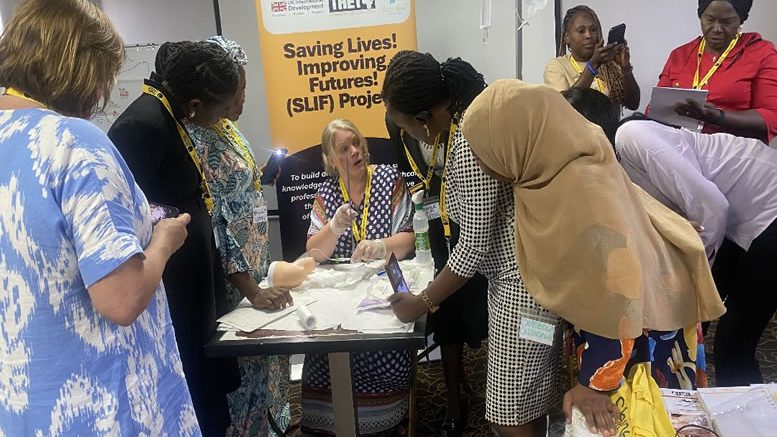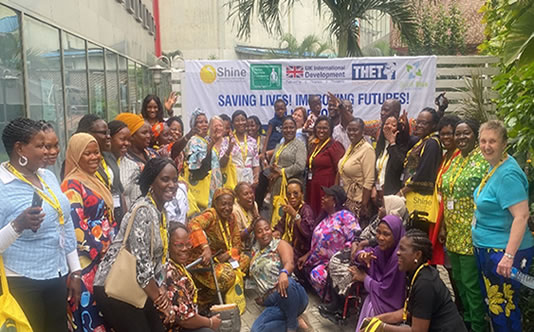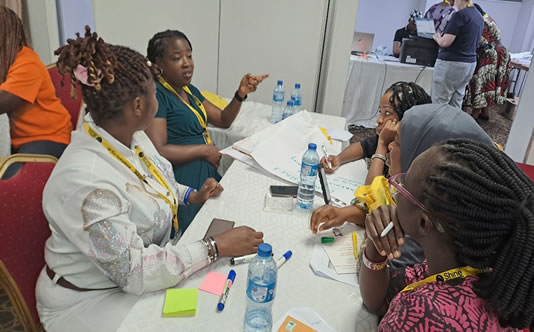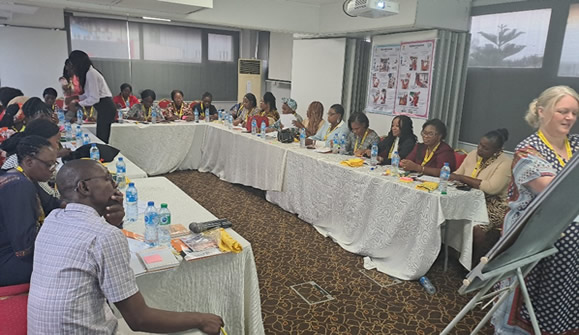Saving Lives! Improving Futures (SLIF) Project (Continence Management)
Background: (2017 till Date)
Having one form of disability or the other comes with some underlying health challenges, and among this is difficulty in controlling the movements of the bowels and bladder for persons with Spina Bifida.
Incontinence is the inability of person to have control over passing of urine or feces in a socially acceptable and hygienic way.
All children born with spina bifida will have a neuropathic (nerve damaged) bladder and bowel. With no continence intervention, a significant proportion of children with spina bifida will experience kidney problems, which without treatment would result in renal failure. Most will wet and soil every day.
In the absence of good quality, highly absorbent disposable nappies or pads, skin soreness is hard to avoid. For some, the sores will develop into deep wounds that are almost impossible to heal.
In developing countries like Nigeria, the situation is compounded by high level of poverty, profound cultural and spiritual stigmas and paucity of medical equipment and personnel and poor budgetary funding of health sector by government.
Four areas of continence management covered under SLIF Project:
Clean Intermittent catheterisation – CIC – draining the bladder on a regular basis to reduce the risk of urinary tract infection (UTI) and kidney damage.
Bowel washouts – to evacuate the faeces daily to prevent soiling, and to avoid build-up of stool in the lower bowel which can impact on the health of the bladder.
Measuring bladder pressure – monitoring the pressure within the child’s bladder is used to document the behaviour of the bladder and allows the success of the treatment to be measured.
Instillation of Oxybutynin – anticholinergic medicine to reduce bladder overactivity by relaxing the bladder muscles. This reduces wetting and preserves renal function.
Justification:
To address the challenges above, Festus Fajemilo Foundation & Shine UK launched the Saving Lives! Improving Futures (SLIF) Project in 2017and funding support from a host of donors including
- Wales for Africa Hub
- Gay & Keith Talbot Trust U.K
- Child Help International (CHI)
- International Federation for Spina Bifida & Hydrocephalus (IFSBH).
In February 2024, FFF & Shine UK expanded the project to more facilities and regions of Nigeria with a view to reaching more children with spina bifida with quality continence care with funding from the UK Department of Health & Social Care (DHSC) under the Global Health Workforce Program managed by Global Health Partnerships (Formerly THET) & Ducit Blue Solutions.
The project aimed to enhance the skills, knowledge and capacity of health workforce in the delivery of quality continence care and management to increase the life chances and futures of babies, children and young adults with spina bifida in Nigeria.
With the grant from the UK Department of Health & Social Care since February 2024 till date, the project has trained:
- 99 health facility staff and community health workers in the delivery of quality continence healthcare,
- supporting the establishment of continence clinics in 9 public health facilities, providing free supplies of continence kits to the health facilities and, most importantly
- reaching more than 250 children with spina bifida through hospital-based clinics and outreach activities with the latter experiencing improved well-being.
- Project has also produced sustainable resources including jingles (https://youtube.com/shorts/41qkNSTCJWI?feature=share) and documentary (https://www.youtube.com/watch?v=H1kd63a0Rtk) for continuous education and to showcase learning and impact of the project.
Below are the current public health facilities involved in the SLIF project:
- Lagos University Teaching Hospital (LUTH)
- Lagos State University Teaching Hospital (LASUTH)
- University College Hospital (UCH)
- Obafemi Awolowo University Teaching Hospital Complex (OAUTHC)
- University of Benin Teaching Hospital (UBTH)
- Rivers State University Teaching Hospital (RSUTH)
- Federal Medical Centre, Umuahia
- University of Abuja Teaching Hospital (UATH)
- Usmanu Danfodiyo University Teaching Hospital (UDUTH)




